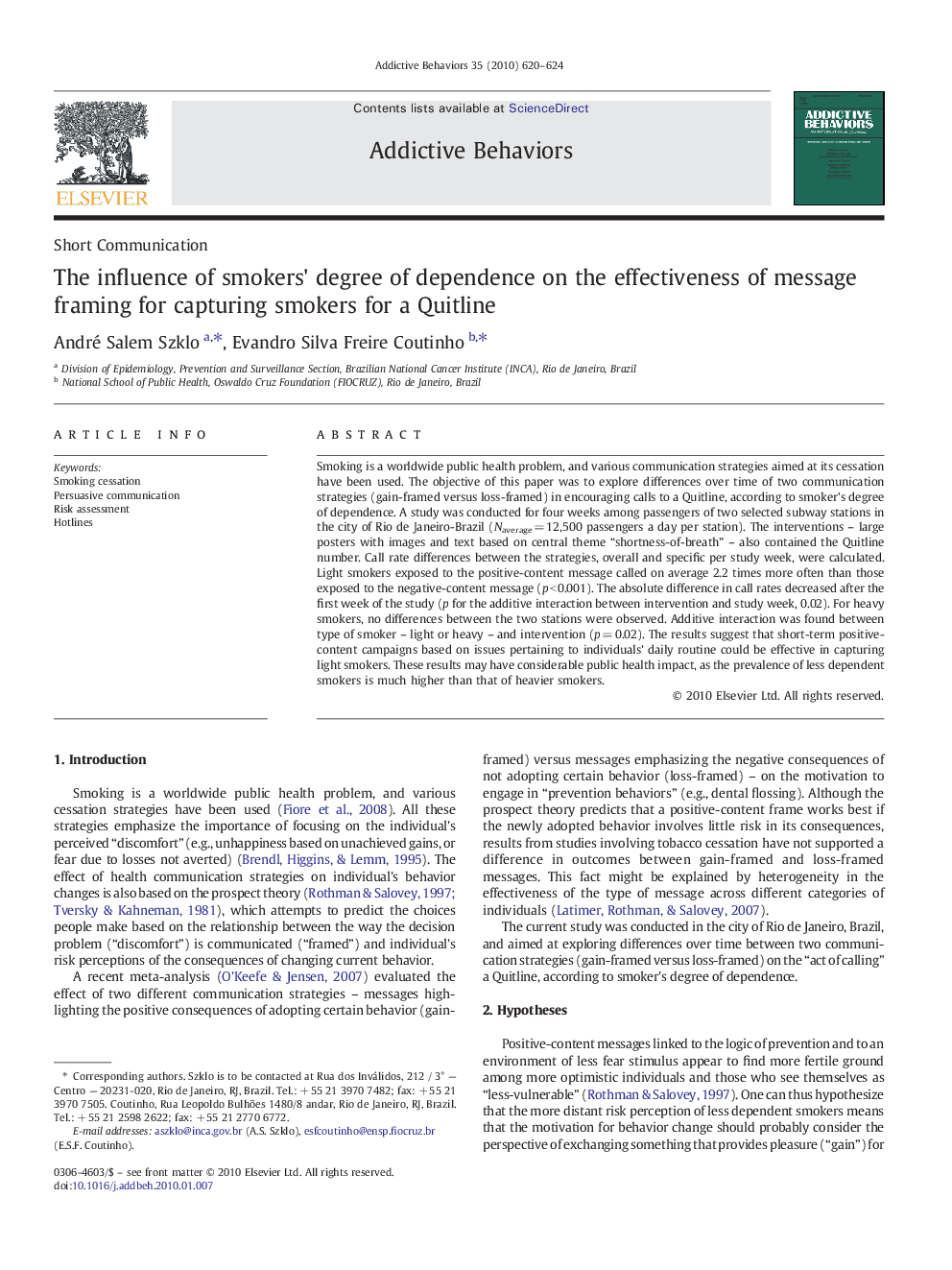| کد مقاله | کد نشریه | سال انتشار | مقاله انگلیسی | نسخه تمام متن |
|---|---|---|---|---|
| 899827 | 915403 | 2010 | 5 صفحه PDF | دانلود رایگان |

Smoking is a worldwide public health problem, and various communication strategies aimed at its cessation have been used. The objective of this paper was to explore differences over time of two communication strategies (gain-framed versus loss-framed) in encouraging calls to a Quitline, according to smoker's degree of dependence. A study was conducted for four weeks among passengers of two selected subway stations in the city of Rio de Janeiro-Brazil (Naverage = 12,500 passengers a day per station). The interventions – large posters with images and text based on central theme “shortness-of-breath” – also contained the Quitline number. Call rate differences between the strategies, overall and specific per study week, were calculated. Light smokers exposed to the positive-content message called on average 2.2 times more often than those exposed to the negative-content message (p < 0.001). The absolute difference in call rates decreased after the first week of the study (p for the additive interaction between intervention and study week, 0.02). For heavy smokers, no differences between the two stations were observed. Additive interaction was found between type of smoker – light or heavy – and intervention (p = 0.02). The results suggest that short-term positive-content campaigns based on issues pertaining to individuals' daily routine could be effective in capturing light smokers. These results may have considerable public health impact, as the prevalence of less dependent smokers is much higher than that of heavier smokers.
Journal: Addictive Behaviors - Volume 35, Issue 6, June 2010, Pages 620–624